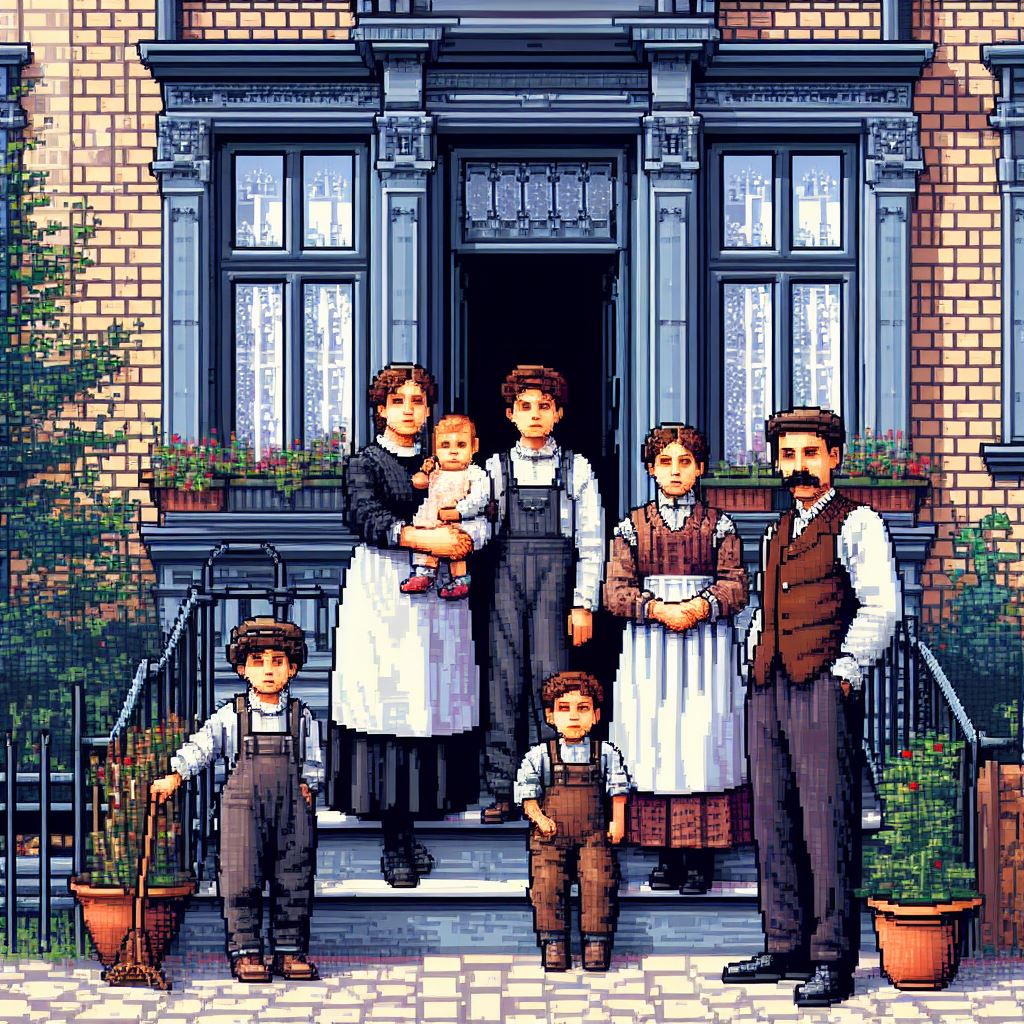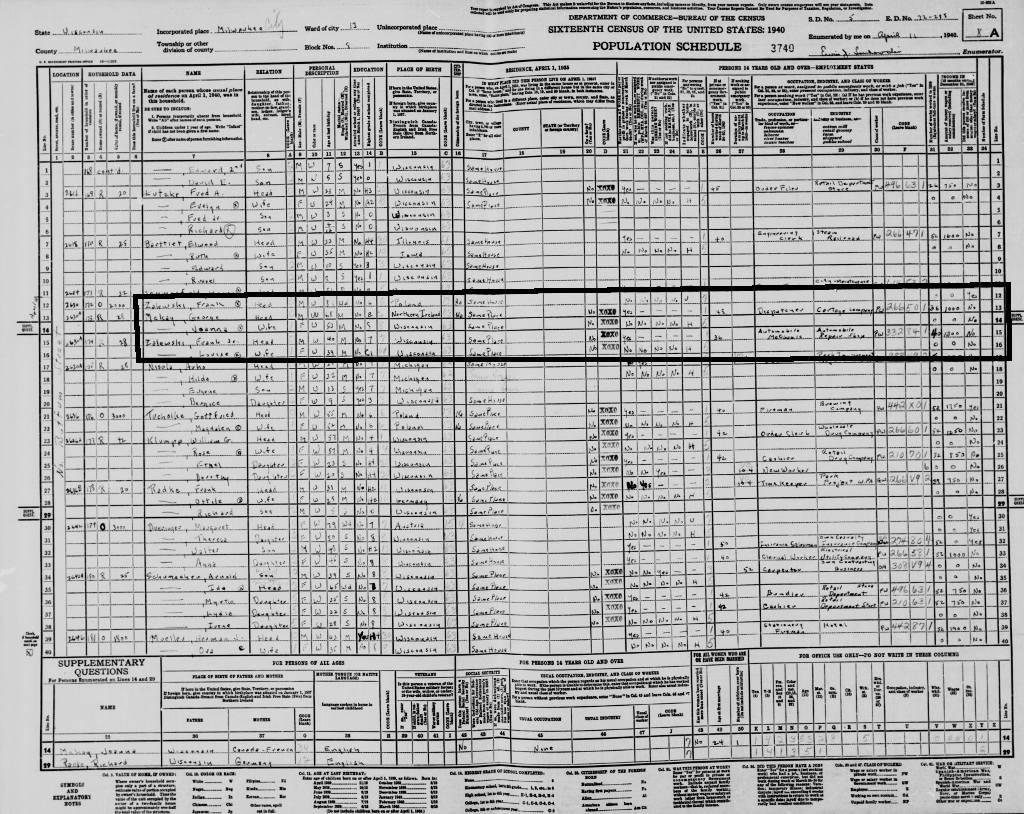Well, I was going to write an article asking for some help, but I think I found my answer. When I was a kid, we used to visit my great grandmother (or who I thought was my great grandmother at the time.) As far as I can remember, we always called her “Tanta.” I always thought this was her name, but was told later on that this meant “Grandma” in German. My dad also used to call her this.
It turns out that Tanta was not my actual great grandmother, but my step-great grandmother. My real great grandmother had passed away in the early 1940s and my great grandfather remarried later on. Tanta was Agnes (Pulchinski) Zalewski.I was going to ask if anyone could verify that Tanta meant “Grandma.” I did a Google search a bit ago and found nothing of interest, but right before writing this post I had an idea. I did a search for “Tanta” on the German Google, google.de. The first few entries were for a city called “Tanta,” but then I found a few entries using Tanta to describe a family member. It looks like Tanta is also used for Aunt along with Grandma. I also found entries for the male version, Tante.
Now, is there anyone out there that has better verification than a few people using it on their websites? I’d like to know, since I was using it for most of my childhood. Thanks.


Brian – that sounds more like the word “Aunt” in German (“tante”). Perhaps she was a great-aunt instead.
She was my step-great grandma, but we called her Tanta at her request. This could have been a name she chose for a niece or nephew at one point.
In German, “Oma” is grandmother. It can be shortened to Omi (pronounced omee). Blaine is right that “Tante” (pronounced tanta) is aunt in German. It can also be used as slang for an older woman. A godmother is a “Patentante”. Maybe this is an angle to pursue?
Unfortunately, not much of an angle there. She was my great grandfather’s wife. I was just curious as to how she got the nickname.
Brian,
As others have mentioned, “Tante” is German for Aunt. I would guess that the children of your great grandparents may have referred to their stepmother as “Tante” rather than “Mutter”, since she was not their mother by birth.
Tante = aunt
Onkel = uncle
Mutter = mother
Vater = father
Grossvater = grandfather
Grossmutter = grandmother
Urgrossvater = great grandfather
Urgrossmutter = great grandmother
The prefix “ur” in Urgrossvater and Urgrossmutter may originate from the word “uralt” meaning “very old”.
I grew up within a half German house. Tanta always meant aunt.
Oma was grandma. “Omi” when I was quite young…
Opa = Grandpa.. or Opi
Great-grandmother was Tica Oma.
I’ve had German clients for more than 20 years. They got quite a laugh out of me when I was a young man.
In retrospect… (Herman, you gotta meet this guy… Why, .. He switches from Irish Boston guy slang to Cologne German slang midsentence… Does he know that?… No…)
I have german relatives also and they always referred to their step-relative as “Tanta Marie” (Apparenltly, tanta is actually spelled tante).
My grandfather always refers to his step-grandma as “Tante Marie”. Everyone else in the family did the same, no matter their relation to her. Infact, when I did interviews almost no one knew her actual name!
Hi,
My neices and nephew’s call me tante Pattie and it does mean aunt. My father is German, so I’m absolutely sure that this is the correct definition of the word.
Pat
Very interesting. There was a woman in our family whom we all referred to as Tanta until she passed away in 1989 – she had been my father’s nanny when he was younger and remained a family friend. Always knew her as Tanta/Tante.
Tanta is also a last name!!!! I know because it is my last name!!
When I was growing up, Mom’s older sister was called Tanta Alma. She was also my Godmother. I don’t remember referring to any of Mom’s four other sisters as Tanta. Tanta Alma was held in high regard by all of the family because of her character and personality. She was widowed young, but she made anyone she met feel good. She always seemed to be more interested in others than herself. I think the term Tanta may connote more than simply “aunt”.